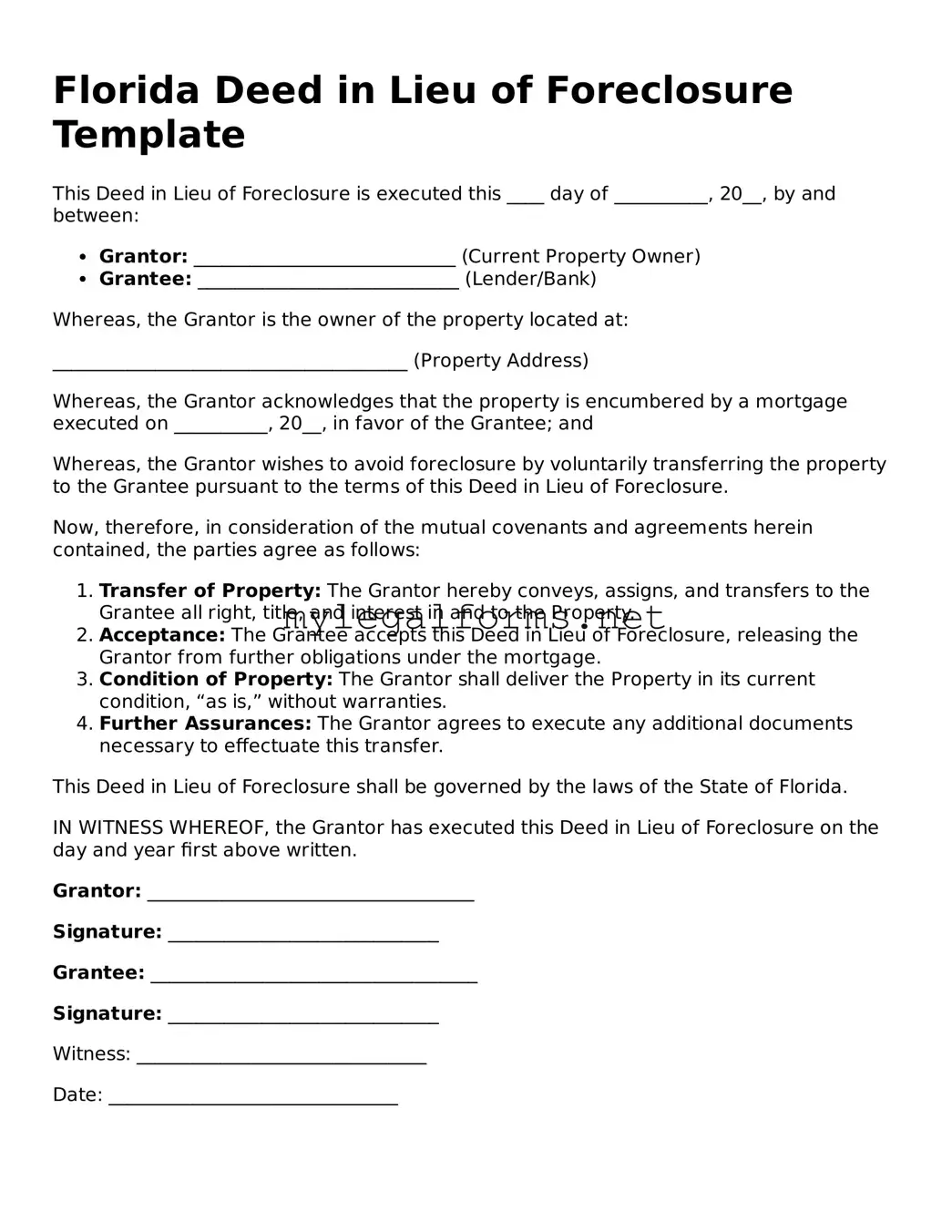Deed in Lieu of Foreclosure Document for Florida State
A Deed in Lieu of Foreclosure is a legal document that allows a homeowner to transfer ownership of their property to the lender in exchange for the cancellation of the mortgage debt. This option can provide a more streamlined and less costly alternative to the foreclosure process. Understanding the implications and procedures involved in this form is essential for homeowners facing financial difficulties in Florida.
Launch Deed in Lieu of Foreclosure Editor

Deed in Lieu of Foreclosure Document for Florida State
Launch Deed in Lieu of Foreclosure Editor

Launch Deed in Lieu of Foreclosure Editor
or
⇓ PDF Form
Complete the form at your pace — fast
Finish your Deed in Lieu of Foreclosure online and download the final version.